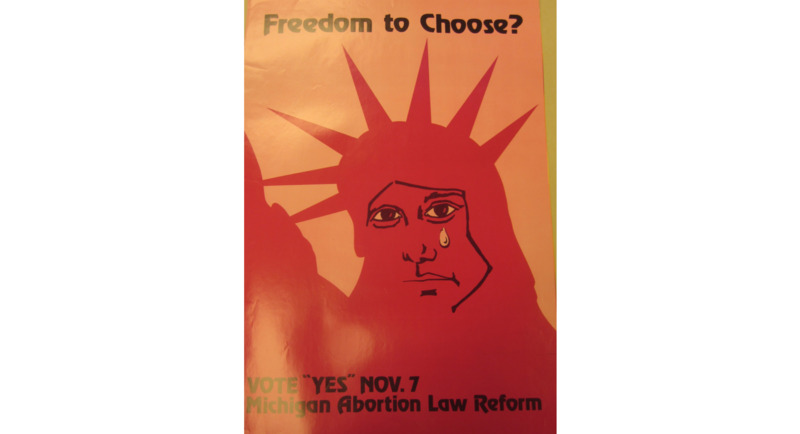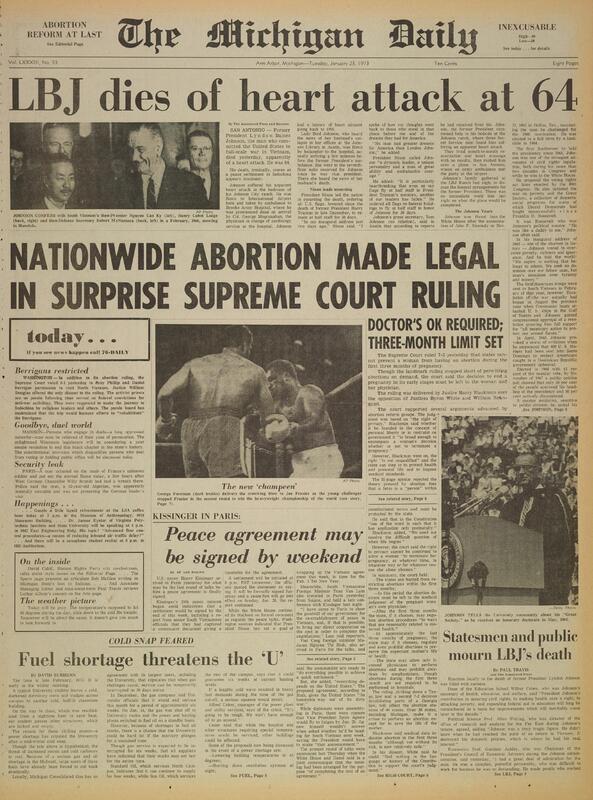The 1970s were a decade of changing access to abortion around the country. Changes to abortion laws and legal statutes on the federal level changed access to these services in Michigan. Prior to the Suprme Court Roe v. Wade ruling in 1973, abortion was not legal in Michigan.
With the growing Women's Movement, several bills were considered in Michigan to make the abortion laws some of the most liberal in the nation (Johnson-Levy, 2022). One such bill was brought forward by Ann Arbor Republican State Senator Gilbert Bursley to, "completely liberalize" abortion access in Michigan. (Johnson-Levy, 2022). Many women in Michigan were forced to travel to other states to obtain abortions.
In 1972, the Michigan Abortion Referendum Committee led the support of Proposal B (New York Times, 1972). The issue of legalized abortion had been stalled in the State Legislature and the committee decided to take the issue directly to voters. The proposal would allow "a licensed medical or osteopathic physician to perform an abortion at the request of the patient, if (1) the period of gestation has not exceeded 20 weeks, and (2) the procedure is performed in a licensed hospital or other facility approved by the Department of Public Health" (New York Times, 1972). The proposal was defeated with 60% of the vote on November 7, 1972 (New, 2022). President Richard Nixon was elected to a second term in this same election (Johnson-Levy, 2022).
The Roe v. Wade Supreme Court ruiling changed abortion access in Michigan and around the country. Overnight the national laws changed so that the state could not prevent someone from having an abortion within the first three months of pregnancy. During this period any decisions regarding the termination of a pregancy were between a pregnant person and a healthcare professional. The new laws meant new requirements would be put in place and providers would be able to start providing abortion care. (Johnsson-Levy, 2022)
After the Roe v. Wade ruiling activists were not done. Abortion providers began offering services, but the saftey and leginimacy of these clinics was still in question for many seeking these procedures. The University Taskforce remained active in vetting abortion clinics, " safety for student, faculty, and staff referrals." Pro-abortion groups in Michigan and around the country continuted to advocate for safe and accessible abortion procedures for all. As a new landscape emerged women's groups faced situations that they had not encountered before. Reports on country wide activism were distributed throught the country to hightlight the work that was being done to further the pro-choice cause. (Johnson-Levy, 2022)





